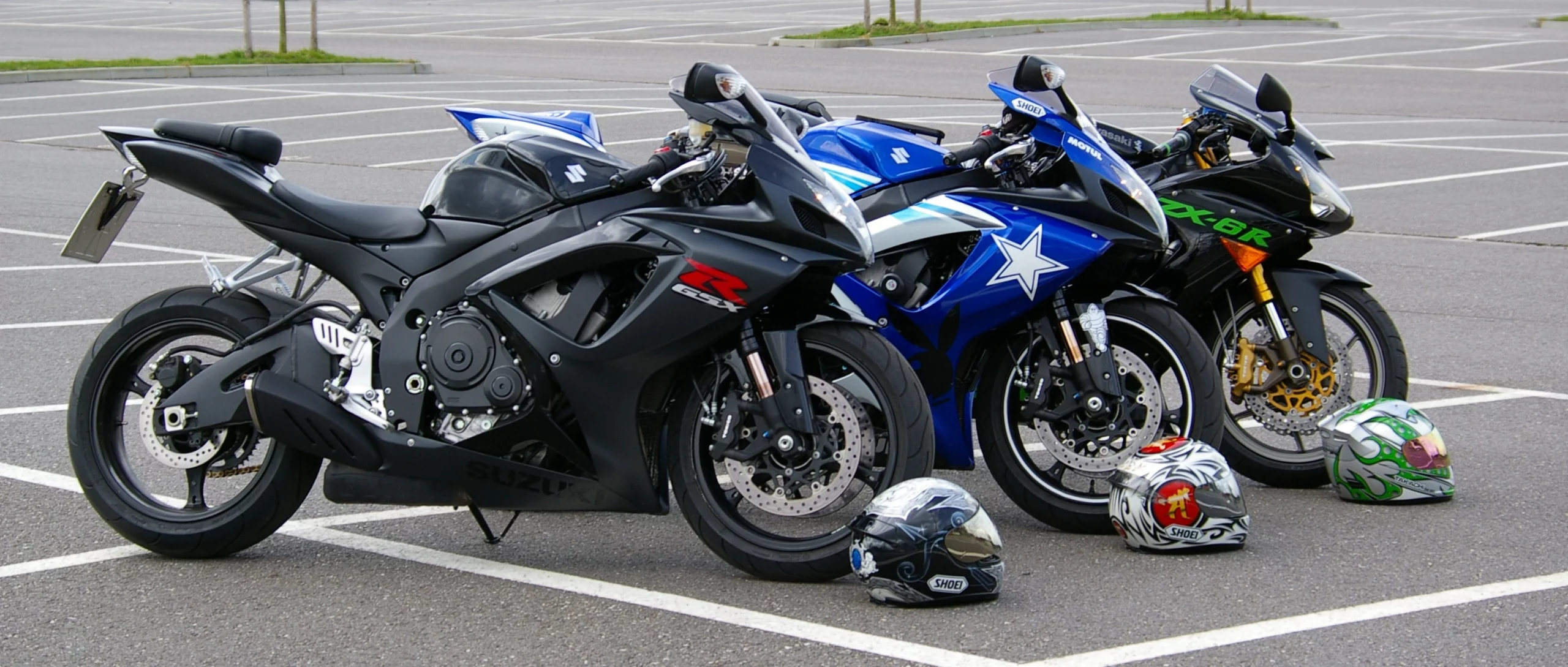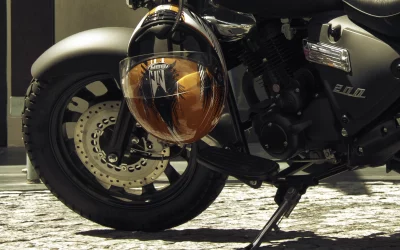Injuries Sustained in a Colorado Motorcycle Accident
While motorcycles may be quick and exciting to ride, they also put riders in far more danger of crashing. Motorcycle accidents also have a larger incidence of deaths and injuries, which may have long-term consequences.
Dealing with physical recovery after a car accident is undeniably difficult for the sufferer and their loved ones. In the aftermath of an accident, starting seeking compensation for losses would only add to the stress.
The following article discusses frequent injuries sustained as a consequence of a motorcycle accident and crucial factors for claiming damages. Consider calling a motorcycle accident lawyer to guarantee you obtain all of the damages due to you.
Free Consultation
In Person | Phone | Zoom
Why are motorcycles more likely to be involved in an accident?
Motorcycles are generally linked with risk and thrill-seeking, yet accidents may occur even when riders are exceedingly careful. Motorcyclists are more likely to be involved in an accident, even while driving safely. The following variables enhance the probability of a motorcycle accident.
Smaller Car Dimensions
A motorcycle’s smaller footprint makes it more vulnerable to accidents. Because motorcycles are smaller, they are more prone to wind up in another driver’s blind area. Furthermore, when cars make left turns, a motorcycle is far less apparent to the car. Consequently, numerous accidents occur when a car collides with a motorcycle as it makes a left turn.
Advanced safety measures are crucial in preventing motorcycle accidents caused by the bike’s size. The Insurance Institute for Highway Safety (IIHS) discovered that over 8,000 accidents might be avoided or reduced.
The IIHS recommends that all cars be fitted with front collision prevention, lane-keeping, and blind- spot detection systems. These safety systems should be more sensitive to identifying motorcyclists.
Risks on the Road
Motorcycles are much less stable in severe weather or on slick roads. Slippery roads or severe weather conditions may make a motorcycle less stable and limit visibility. Compared to passenger cars, potholes or debris on the road are more likely to shake a motorcycle or throw it off course.
Motorcycle Servicing
Motorcycles, like all other motor cars, require regular maintenance. Failure to prioritize routine maintenance may dramatically increase the likelihood of an accident occurring. It’s critical to pay close attention to the tires, brakes, and drive chain.
A badly maintained drive chain, for example, might create discrepancies with the bike’s rear wheel. Inconsistent wheel alignment makes riding a motorcycle very unsafe.
Inadequate Motorcycle Riding Education
All of the risks above factors are based on sufficient education and training for motorcycle drivers. One- third of all motorcycle fatalities are either incorrectly licensed or do not have a license at all. Even legally licensed drivers are not provided with formal instruction.
Many motorcycle riders are self-taught or learn to ride with the help of family or friends. A lack of effective defensive driving tactics might enhance the rider’s chances of accident involvement.
What Are the Most Common Motorcycle Injuries?
Unfortunately, significant injuries and deaths in motorcycle accidents are much more prevalent than in other types of motor car accidents. Because motorcycles are less protective, the injuries sustained are generally far more severe and likely to have long-term consequences.
Motorcycle Fatalities and Injuries Statistics
According to the Insurance Information Institute (III), deaths and injuries are substantially more likely to occur when a motorcycle is involved in an accident. In fact, according to 2016 statistics, motorcyclists were 28 times more likely to die in an accident.
The figures compared the number of fatalities among motorcycle riders and passenger car passengers per mile traveled by each kind of car. Surprisingly, just 14% of motorcycle accidents result in no fatalities or injuries.
The data below indicates the potential dangers of motorcycle accidents:
Motorcycle accidents claimed the lives of 5,286 people. This equates to 60 fatalities for every 100,000 registered motorcycles. Sixty fatalities may not seem to be a huge amount at first glance. Compared to the number of deaths in passenger cars, which is slightly less than 10, the heightened risk for motorcyclists is clear. According to studies, motorcycle riders are six times more likely than car passengers to die in an accident.
Motorcycle accidents resulted in 88,000 injuries. To put this in perspective, this equates to nearly
1,000 injuries for every 100,000 registered motorcycles.
One would believe that developments in helmets and safety equipment would reduce the number of deaths and injuries over time. Unfortunately, technological advancements alone will not make
motorcycle roads safer. The number of deaths from motorcycle accidents in 2017 was more than twice the figure recorded in 1997.
Common motorcycle Injuries
Motorcycle accidents may result in serious injuries. Motorcycles do not provide the same level of occupant safety as cars. Motorcycles are built without a solid frame, airbags, seatbelts, or other accident protection.
Helmets, gloves, glasses, and specific clothes may all provide some protection. However, protective gear cannot compare to the protection afforded by a car’s robust structure. Colorado law requires motorcycle riders to wear protective heads and eye protection. This rule does not apply to riders who have adequate insurance coverage.
Given a motorcycle’s lack of protection, it’s no wonder that collisions result in serious injuries. Injuries that are common include:
Injuries to the head and brain caused by trauma
Because there is no frame or seatbelt, the biker is likely to be thrown off the motorcycle. As a consequence, head and brain injuries are rather prevalent. If the driver is not wearing a helmet, traumatic injuries are more probable. Head traumas can have long-term consequences.
Injury to the spinal cord
Because the driver is likely to collide with the ground, spinal cord injuries are not uncommon. Spinal cord injuries, like brain traumas, usually have long-term consequences.
Accidents to the neck
Whiplash, slipped and ruptured discs, and nerve injury are all common problems. Bone fractures
Broken bones are also possible as a consequence of the forceful collision with the ground. If the break is significant, the rider may need surgical operations and rigorous physical therapy to recover correctly.
Lacerations and concussions (Cuts and bruises) If you were in a motorcycle accident and merely received cuts and bruises, you should count yourself as quite fortunate. Cuts and bruises are common companions of more serious injuries and raise the risk of infection.
Motorcycle injuries are likely to need medical attention. Hospitalization and long-term rehabilitation may be part of medical therapy. Severe injuries may impair an individual’s ability to do their work or engage in previously loved pastimes.
How Do I File a Claim for Damages?
If the motorcycle driver is not responsible for the collision, they should not be forced to pay the financial implications. Accidents sometimes result in expensive human injuries and property damage. To recover damages, various actions must be taken. To begin, you must decide if another person was at fault. Then you must assess your losses and file a personal injury lawsuit against the responsible party.
Determining Motorcycle Accident Liability
If another person behaved irresponsibly or failed to comply with traffic rules or regulations, they may be deemed “at fault.”
The other driver was speeding;
The other driver failed to heed a stop sign or traffic signal;
The other driver failed to check their blind spot or otherwise notice a motorcycle driver who was
obeying traffic laws;
The other driver was under the influence of alcohol or drugs;
The city failed to properly maintain the roads; or
The motorcycle suffered a malfunction due to the fault of the manufacturer.
If another motorist was involved in the collision, obtaining a police record detailing the event would be very beneficial. Any tickets issued for violations of traffic or other regulations will be included in a police record.
Any witness information will also be included in police records. However, if the police do not gather contact information from witnesses, you should. Eyewitness testimonies of the collision may be required later on to prove a case for damages.
Determining guilt may be a difficult task that may need extra investigations or interviews. All police records, citations issued at the site, and witness accounts must be thoroughly scrutinized. A fault is often a contentious subject, particularly when large sums of money are at risk.
Damages for a Motorcycle Accident
A motorcycle accident is likely to result in two sorts of losses: those that can be accurately estimated, such as car repair expenses, medical bills, past and future lost wages, and non-economic damages, such as pain and suffering.
Many of the losses mentioned above are easy and simple to calculate. Adding up medical costs and invoices from a motorcycle repair shop, for example, involves just basic arithmetic. On the other hand, injured riders frequently incur damages in addition to medical bills and property repairs.
The bulk of the losses for which the aggrieved party is entitled to compensation will be significantly more difficult to determine. Future lost earning capability, for example, may need the assistance of an
economic specialist. It will include an assessment of your skills and abilities before the accident. Your past talents will be compared to your abilities after the injury, and your statistical life expectancy will be considered.
Less tangible damages, such as pain and suffering, will be decided by the jury. An attorney will need to present strong arguments to persuade the jury that you deserve the number of damages you deserve.
Pursuing Motorcycle Accident Compensation
Following an accident, there are numerous options for claiming compensation. Working with the negligent party’s insurance carrier to reach an agreement with the negligent party without filing a lawsuit is one option. If you are unable to reach an amicable solution, you may need to resort to a lawsuit. Depending on your circumstances, you may need to combine negotiation and lawsuit.
It is essential to submit a claim with the negligent party’s insurance company if they have insurance coverage. An insurance company is more likely to pay for losses that can be estimated exactly, such as medical expenses. Damages may exceed the amount of coverage provided depending on the scope of coverage and the severity of your injury. If the available coverage does not cover your losses, you may have to seek compensation from the liable party directly.
Any losses that exceed the insurance company’s coverage limitations or are refused by the insurance company must be collected directly from the negligent party. You will need to carefully examine the merits of your claims and provide specific factual evidence for the number of damages you have asked for.
Typically, the initial step is to file a lawsuit against the accountable party. Litigation may be a time- consuming procedure, and juries can be unexpected in their awarding of compensation. Before formulating a lawsuit strategy, you should explore seeking to settle out of court.
When suing the city or the motorcycle manufacturer for damages, the law may compel you to follow certain steps.
Motorcycle crashes are harrowing events. Seeking compensation for your losses will almost certainly add to your stress.
Retain the Services of a Skilled Motorcycle Accident Attorney
Managing injuries following a motorcycle accident are already demanding. The stress you feel will be exacerbated if you also have to figure out how to seek compensation from the irresponsible party.
An attorney who has handled motorcycle accident cases can assist you in understanding your alternatives. They will investigate the carelessness of the other parties involved, assess your losses, and advise you on the best course of action.
To schedule a free consultation with Warrior Motorcycle Accident Attorneys regarding your motorcycle accident case, please call 719-300-1100 or complete an online contact form.







